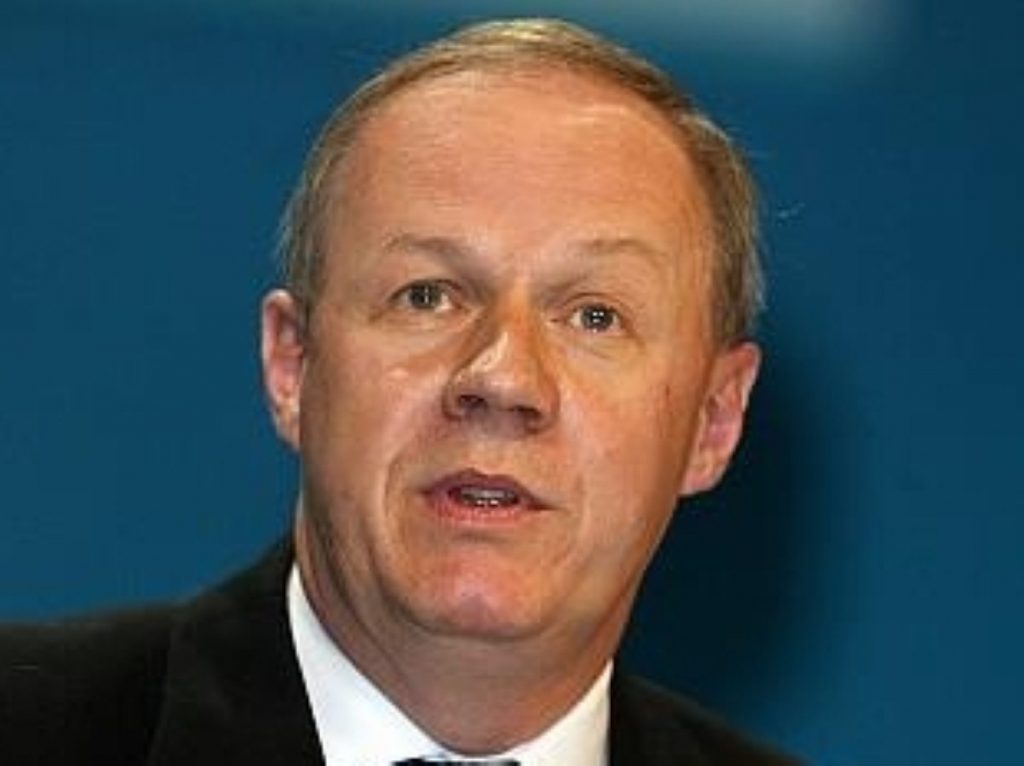Vaz takes action on Tory arrest
The chair of the home affairs committee, Keith Vaz, has tabled a discussion on the arrest of Damian Green for the committee’s next meeting.
“We are totally in the dark about what this is about,” Mr Vaz said.
The move marks the end of a day that saw Westminster shaken by the arrest.
Mr Green, shadow immigration minister, was arrested over a series of Home Office leaks, leading to claims of a “Mugabe regime” in Westminster.


He was held on suspicion of “conspiring to commit misconduct in a public office,” according to police, and has now been released after nine hours in custody without charge.
Upon his release, Mr Green said: “I emphatically deny that I have done anything wrong. In a democracy opposition politicians have a duty to hold the government to account.”
David Cameron expressed his anger over the incident, describing it as ‘Stalinesque’.
“It has come to an extraordinary pass when opposition politicians, questioning the government, calling it to account, making information available in the public interest, are being arrested,” he said at the Policy Exchange thinktank this morning.
“If this had happened in the 1930s Winston Churchill would have been arrested,” Mr Cameron added.
“If we routinely arrest politicians who have made public information that they’d been passed, Gordon Brown would have spent quite a lot of time at the police station.”
Liberal democrat leader Nick Clegg said the arrest was “a mayday warning for our democracy”.
“British democracy is in danger when opposition politicians get arrested by teams of counter-terrorism officers,” he said.
“Lord Carlile of Berriew, the independent reviewer of the government’s terrorism legislation, has confirmed to me that he has not yet received any official response to his inquiries about whether counter-terrorism powers were invoked in the arrest.
“Lord Carlile also confirmed to me that he could not currently envisage any circumstances in which these powers could have been justified in this case.
“This is something you might expect from a tin-pot dictatorship, not in a modern democracy,” he added.
Inquiries from politics.co.uk to the Metropolitan Police and the Home Office have yielded mixed messages.
Metropolitan Police representatives seemed at one point in the morning to think Mr Green’s arrest had been covered by the Police and Criminal Evidence Act 1984 (PACE), for which counter-terrorism officers share a brief.
But a Home Office spokesman insisted the two offences Mr Green was arrested under were common law offences, and that counter-terrorism officers were used because the case involved leaks from a government department. Under this version of events, he would merely have been questioned and evidence taken under PACE.
Late in the afternoon, police spokespeople confirmed the searches and arrest were conducted under the provisions of PACE, not the Terrorism Act 2000.
Civil liberties group Liberty condemned the way the arrest was orchestrated.
Director Shami Chakrabarti said: “The fundamental duty of the Metropolitan police is to protect Londoners from harm, not the government from political embarrassment.
“Sending nine counter-terror officers to search and arrest an opposition politician who poses no flight risk leaves the Met with a great deal of explaining to do in due course.”
Liberty wanted to know why criminal law was being used to deal with the issue in the absence of a national security or official secrets implication.
It queried why a sitting MP was arrested, rather than being invited to attend an interview like former prime minister Tony Blair.
And it questioned whether the use of criminal justice tools to investigate an elected representative was in the public interest.
“Liberty has no intention in siding with any political party, still less of interfering with an ongoing police investigation, but we feel duty bound to raise important operational, legal and constitutional questions about this incident,” Ms Chakrabarti added.
Conservative figures insist such an arrest – of a senior politician on the opposition front benches – would have to have been authorised from “the very top”.
The party immediately launched a robust defence of Mr Green after the arrest.
A spokesman said: “As shadow immigration minister, Mr Green has, on a number of occasions, legitimately revealed information which the Home Office chose not to make public.”
“Disclosure of this information was manifestly in the public interest.
“Mr Green denies any wrongdoing and stands by his actions.”
The arrest appears to be connected to that of a junior Home Office official.
The official is currently suspended but was not charged.
The arrests may be connected to leaks including the hiring of an illegal immigrant on the Commons cleaning staff and a memo from the home secretary voicing concerns the economic downturn could increase crime. There are thought to be four documents in particular.
One contained details of Labour MPs prepared to vote against government counter-terrorism legislation.
A Downing Street spokesman said: “This is a matter for the police. The prime minister had no prior knowledge of the arrest of Mr Green and was only informed after the event.”
The Metropolitan police said: “The man has been arrested on suspicion of conspiring to commit misconduct in a public office and aiding and abetting, counselling or procuring misconduct in a public office.”
Search warrants had been carried out at a home in Kent, another in west London, business premises in Kent and central London.
All are ongoing other than the west London residential address.
The business premise in London indicates his parliamentary office, while the one in Kent is probably his constituency office.
For police to search Mr Green’s office the Serjeant at Arms must give authorisation. He in turn answers to the speaker, Michael Martin.
Mr Green is the MP for Ashford in Kent. He has been Conservative immigration minister since December 2005.

